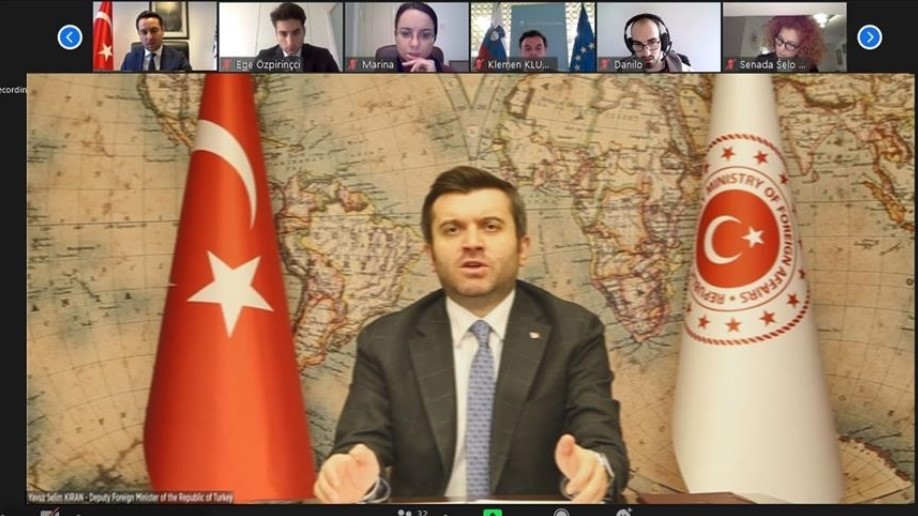Turkey’s strong historical, cultural, and humanitarian ties make the country an integral part of the Balkans, said Turkey’s deputy foreign minister.
-Economic and social integration in our region will enhance peace and prosperity. Besides, the integration will enable us to develop common responses to regional and global challenges- Yavuz Selim Kiran said at a digital workshop on Wednesday.
The digital workshop, titled COVID-19: Challenges and Opportunities in Balkans was organized by the Center for Strategic Research with the participation of members of South-East European Cooperation Process (SEECP) member countries.
Noting that Turkey took over the term presidency of Southeast European Cooperation Process (SEECP) in July, Kiran said: "In our opinion, the main mission of this process is to bring all Balkan countries together around the same table. I am happy to see that we have achieved this goal through today's online meeting."
Kiran highlighted that since the beginning of the biggest crisis of the 21st century, the coronavirus pandemic, more than 70 million cases have been recorded worldwide, with more than 1.6 million deaths.
-Significant increase is being observed in COVID-19 cases in the Balkans. SEECP member countries recorded 3.5 million coronavirus cases and nearly 60,000 people died. These statistics clearly call for international and regional solidarity to tackle the pandemic- he added.
Kiran said Turkey did its part by extending its helping hand to 156 countries and 11 international organizations during the pandemic.
-In this context, I am pleased to state that we also provided medical assistance to the countries in the region. Besides the health crisis, the coronavirus has a serious impact on the social and economic structure of countries. We are witnessing an increase in socioeconomic inequality- he went onto say.
Speaking about COVID-19 vaccines, Kiran said: "We believe that vaccines should be offered to all human beings. Our scientists are working to develop domestic vaccine in Turkey. We currently have 16 vaccine candidates. 13 of them are on the World Health Organization list. Our aim is to share these vaccines with all countries in need."
Stating that the outbreak accelerated global change and brought some opportunities as well as difficulties, Kiran underlined that countries that can balance between tackling the pandemic and maintaining social and economic activities gain an advantage.
-The outbreak has accelerated the transformation in global supply chains. Our region can also benefit from this transformation. So, we have to be able to maintain our economic production and develop our commercial ties- he added.
Noting that the trade volume between Turkey and the Balkan countries is around €17 billion ($20.8 billion) and the total amount of Turkish investments in Balkan countries is around €14 billion ($17.1 billion), Kiran said that economic cooperation is an important part of the relationship.
-Turkey is taking an active role in maintaining peace and stability in Turkey. In addition to our efforts for stabilization through NATO and regional organizations, we also lead various initiatives with our friends in the Balkans, such as Tripartite Consultation Mechanisms. -
-We continue to support the region's integration with European and Euro-Atlantic institutions- he added.
